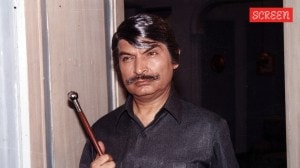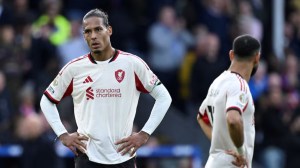Muslim women to have their own handy book soon
NEW DELHI, JAN 23: Muslim women all over the country will soon have their own little book of law to guide them in difficult situations. Th...

NEW DELHI, JAN 23: Muslim women all over the country will soon have their own little book of law to guide them in difficult situations. The book is a legal literacy module drafted by the newly formed Muslim Women’s Forum as part of a legal literacy drive that is being launched by it.
The legal literacy module prepared by the forum along with the Sunanda Bhandare Foundation is based on public hearings conducted among Muslim women from seven states including Uttar Pradesh, Delhi, Karnataka, Tamil Nadu, Assam, Madhya Pradesh and Haryana.
The law guide of about 20 pages written in bold letters in Hindustani is to percolate into far-flung pockets of Muslim population through a network of NGOs in camps nationwide from February, Anish Ahmed a supreme court lawyer who is part of the forum said.
The forum was announced at the national colloquium of women in November and the legal literacy programme is the first programme it has undertaken.
“We have not been able to reach out to women who are actually suffering. And one of the main causes of their suffering is lack of codification of the Muslim law,” says Sayeeda Hamid, founder of the forum.
“The forum was set up to highlight from a liberal point of view the suffering of these women. And a legal guide is a first step towards reducing their helplessness,” says Aneez.
Accordong to Mohini Giri of the Guild of Service which is one of the agencies which will implement the module in a series of camps, it explains every law relevant to women and includes a chapter on Muslim personal law.
Some of the queries answered in the 20-page law book are: How can you get a divorce? What are the rights of property after divorce? What are the rights during a marriage? The module is to be translated into vernacular languages in the places it is used.
“The legal literacy module is just a small part of the major struggle of total literacy for Muslim women,” Hamid said. “Literacy among Muslim women in the country is as law as three per cent in certain pockets as in Nuh in Haryana. In the rest of the country while female literacy was 45 per cent, the rate among Muslim women was lower at 19 per cent,” she pointed out.
According to Vibha Parthasarathy, president of the National Commission for Women, which is aiding the Forum’s literacy efforts, the module for Muslim women is similar to the one the NCW has been offering in its literacy camps for the past five years. The only difference is that the module prepared by the forum is targeted specifically at Muslims.
“But our three-day-long module is also altered to suit the audience. If the camp is held among tribal women in Orissa then it is different and if it is among agricultural women in Nagpur then the approach is different,” Parthasarathy said.
Murli Bhandare one of the authors of the module said that it is about equality and dignity and is relevant for all religions. “The idea is to spread awareness that women — and in this case Muslim women — are not helpless and have rights under law,” he said.
Once the awareness spreads through repeated camps, handbills, counselling sessions, Muslim women will be empowered and will themselves fight for their rights,” Bhandare said.



- 01
- 02
- 03
- 04
- 05



























